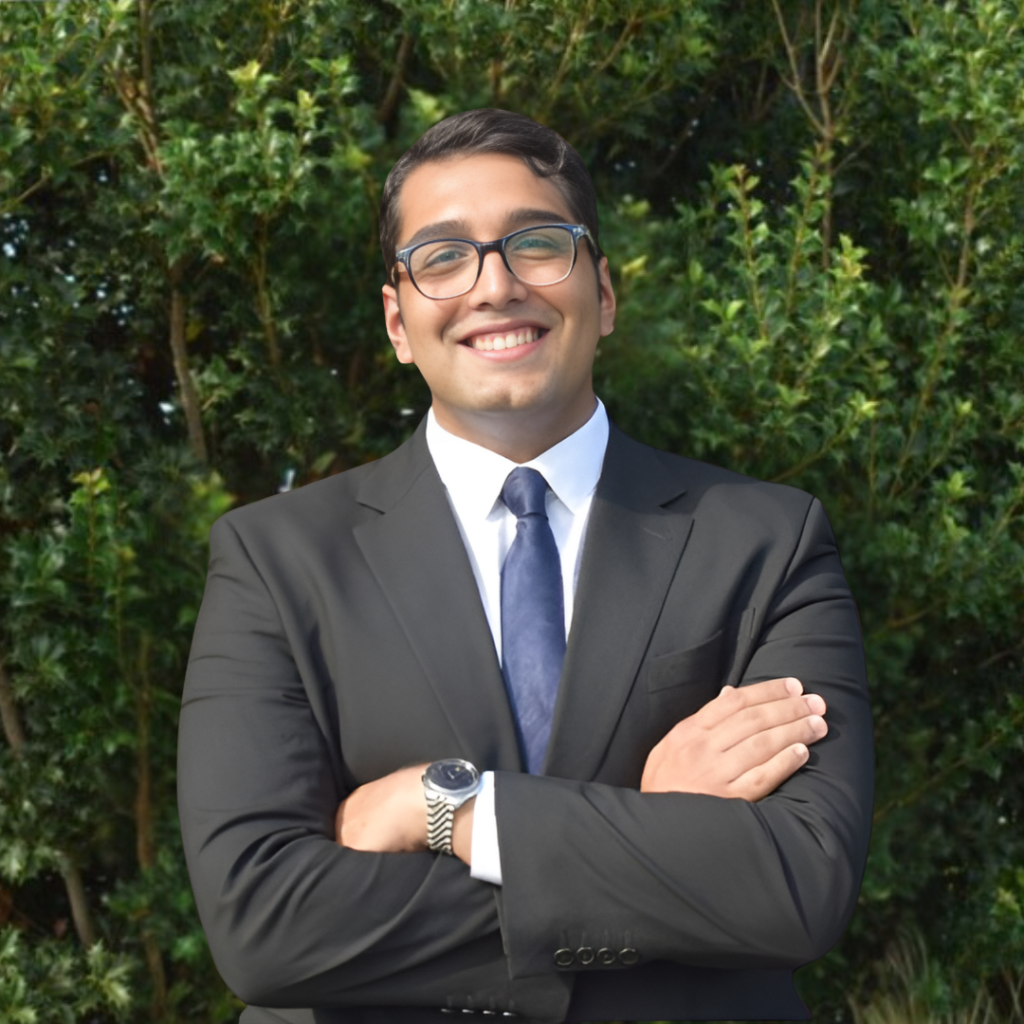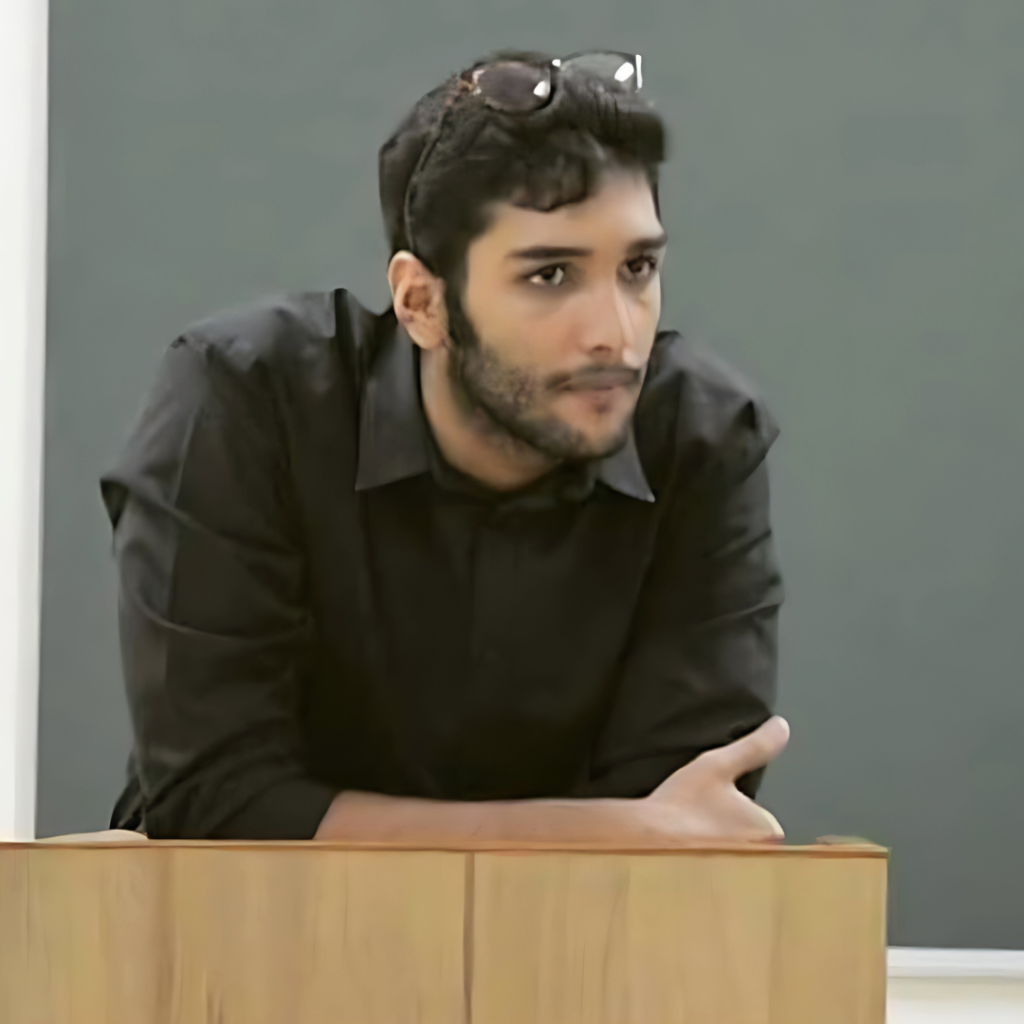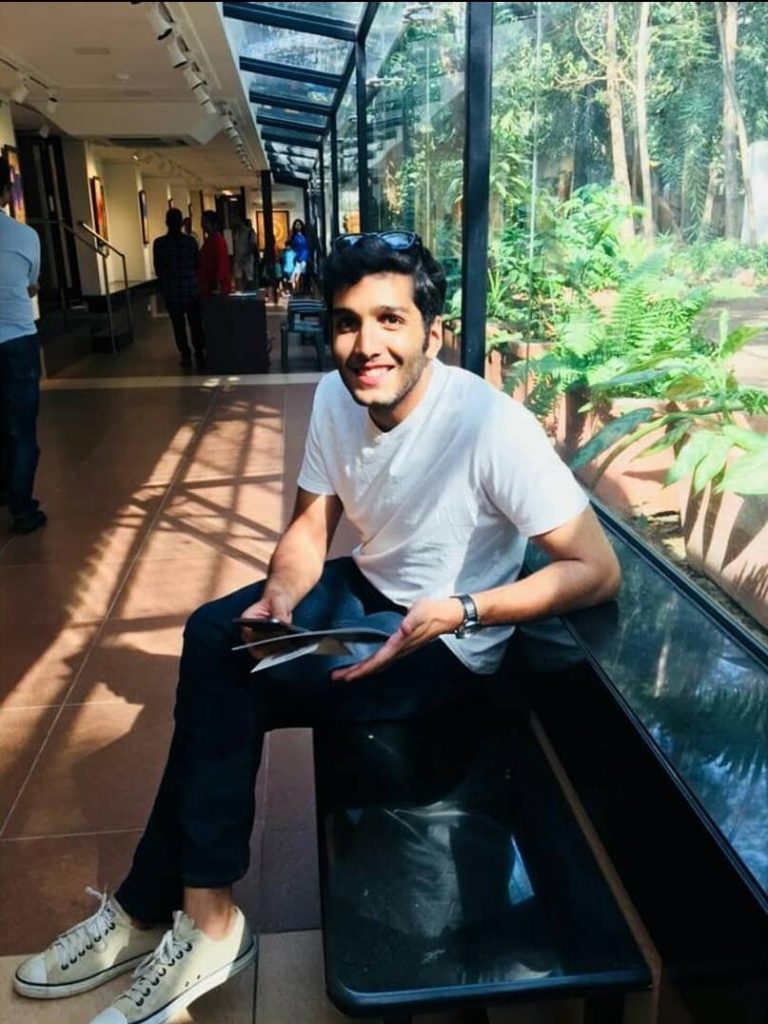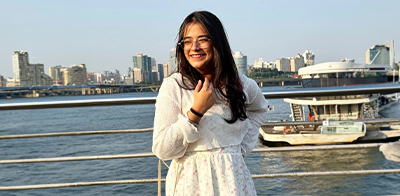Name: Faiz Afsar Sait
Hometown: Bengaluru, India
University: Georgetown Law
Location: Washington DC
Degree: Master’s
Course: International Legal Studies with a Certificate of Specialisation in International Arbitration and Dispute Arbitration
- Gain relevant work experience in India before a master’s. Try and choose something that gives you unique exposure and leverage.
- The SoP is crucial. Invest in it and take feedback from friends, family and professors.
- Learn to cook before you go. Pack ingredients and ready-to-eat foods from India too if possible.
- In the US, adapt to the coffee culture. Put yourself out there and be persistent when you approach people. Networking is the most important thing.
- Register as early as you can for the classes you want.
- Join clubs and associations. Your university is the best networking resource.
- Plan for your future job while you’re applying to universities.

Faiz Sait
When did you decide to study abroad?
I’ve always known I wanted to study in the US – everything that happens in the law happens here in DC. I chose to get work experience in India first and I felt two years was just right.
To how many universities did you apply?
I applied to about six or seven and began the process last September. Georgetown offered me a scholarship, which helped me make the decision.
What was your application process like?
It can take a lot out of you. Start a year in advance and put your documents together for your university and for the Visa (it helps if you have a prior US Visa). Also, universities have different asks so it depends on the course and specialisation you want. Georgetown also offered me a scholarship, which made the decision easier.
Tell me about your SoP.
Then you need to write the SoP which is a balancing act of being true to yourself and also being what they are looking for. There’s a lot of editing, re-editing and asking for feedback. I found it very useful to talk to friends who understand you and professors who have taught you.
Your work experience included a clerkship with a judge. Was that intentional?
Absolutely. It’s a unique and sought-after path, offering deep insights into law and the institutional process. It also involved me in significant cases, like the Marriage Equality judgment (Article 14) and the High Court’s Online Gaming judgment in Karnataka.
Tell me about the process of settling in and housing.
My arrival in DC was delayed by a month due to visa issues, but I had already sorted out my housing from India. Here, it was just a matter of signing the lease, which had a two-week turnover period. Essential tasks like setting up a bank account and getting a new mobile number took some time. Having someone local to vouch for you is crucial; my partner’s presence here made these tasks much easier.
As for housing, it’s important to start the search early due to the high demand when everyone arrives. Consider neigbourhoods, the commute and public transport options. DC’s excellent public transport system and the university’s travel allowance are a big help. The city is also very cyclist-friendly, with Georgetown offering a free cycle service for the year. Luckily, I’m just a 10-minute walk from campus, which is ideal because DC is compact.
What about the cost of living?
The primary expense is tuition, then rent. Everything is expensive – cappuccino costs around $4-5, and you’re expected to tip on everything.
We (my partner and I) try and cook everything at home but if we want a change we go out. You can’t really order-in, the delivery fee is more than the order itself. And the more you spend the more it translates into added pressure to find a job after. You tell yourself that the job you get at the end will offset all of it, so the pressure compounds.
Can you do part-time work?
My F1 visa only lets me work on campus for an hourly wage and this too only in the second semester. I’m looking for an internship – the rules let me work for 20 hours per week, and the internship has to be unpaid.
What are your favourite things about living in DC?
You get to see stuff you wouldn’t see anywhere else! Like, I saw (Representative) Nancy Pelosi walking down the street once! When the indictment (of former President Donald Trump) happened, I got to watch it because the court is right behind the University. The Supreme Court and the Capitol are close by so you can go there too. And all museums, art galleries and the zoo are totally free.
One of my favourite things though, is that I can use the Library of Congress as my personal study area. DC is definitely the best place for me because I’m studying law and international relations.

How do you go about it?
Use your university as a resource. If you attend a conference, go with a university badge and that will get you entry to certain events. You get access to the alumni as well and they’re fantastic. The general consensus is that it’s a hard transition and a difficult place to be so most alumni I speak to understand how stressful it is and are happy to help. Even language is not a barrier when it comes to this.
When are you taking the Bar (exam)?
Next July in Washington DC. Georgetown has a great opportunity that that lets you take two or three short semesters with courses that will help you when you take the bar. It’s only five weeks, so I have that followed by two semesters – fall and spring.
Oh, and you need to make sure that your documents from the Bar Council in India reach the Bar Council in Washington or wherever you’re planning to take the exam, in time.
What are the classes like?
There are six or seven classes per semester. Professors come from all around the globe – we have one flying in from the Netherlands to take a course over a few weekends. You’re in DC, so everyone who comes in is an expert. My Anti Trust Law professor, Professor Howard Shelanski, was nominated to the OIRA during Barack Obama’s Presidential term. My combination this semester is Anti-Trust, Constitutional Law and Arbitration.
Most classes have paper requirements and when there are exams, they are mainly open book and take-home. They want to test your ability to apply the law rather than just study the law.
Is it a hectic schedule?
Yes! Many professors have full-time jobs and come in after their day ends, so the class could be 8-10 pm, 8 to 10.30 pm – and honestly, even that isn’t enough! I have seven classes like this distributed through the week. There could be three classes on a single day and none on other days. And you have to decide this schedule for yourself in advance.
Also, register early because there are limited seats. If you miss the bus to register, you miss the class. Some classes have only 4-5 seats and others have like 50.
Did you feel a cultural difference?
There are lots of differences. Here, the beginning of your interactions is the coffee culture. You don’t just walk into a cafe and place an order, you’re expected to make small talk – ‘Hi, how’s your day, isn’t it cold out?” And you greet everyone who gets on an elevator with you.
You also need a business card even as a student. You exchange cards and then follow up with an email saying ‘let’s catch up for a coffee’.
How do you find time? You’re incentivised to as a student, but what about the people you approach?
Everything revolves around coffee here and you need to know that if you want to find out what it takes to get into a particular firm or organisation. If someone doesn’t reply to your email, which happens a lot, don’t think it’s end of the world. Be polite but persist.
Did this come naturally to you?
I had to learn to put myself out there. Stay up to date on current events, especially sports – ‘Hey, did you catch the game last night,” is a great talking point.
Networking and finding a job is a volume game. You have to apply for everything and hope that something clicks. That’s why I said start early. However, you meet a lot of people and have a good time. It’s totally worth it.
What about other everyday things, like food?
All I want is a Meghna biryani (laughs)! You have to be prepared to eat food that feels flavourless, unless you’re cooking Indian food everyday. Your appreciation for Indian food doubles when you arrive here.
The first week is great because you’re trying all this different stuff but after that, you’re like, ‘now what’? But if you’re paying $50 for a biryani and it’s not even that good, you think ‘I’d rather have a sandwich’. Your tastes become more Americanised. Diversity and eating healthy are both expensive. You can get a burger at McDonald’s for a reasonable price but not a salad. Basically, learn to cook!

What about healthcare?
I got insurance through Georgetown, which helped a lot. But be careful, try not to get sick. I had an infection in my nose so I went to the University Health Centre and they gave me a $400 bill to clean it a little bit. One of my colleagues got a tiny cut on top of his eye and that cost him $1000. Insurance covers it but only as long as you’re a student.
What extra-curriculars are you involved with?
I’m a part of four clubs: Georgetown International Arbitration Society, Georgetown International Law Society, Georgetown Antitrust Association, and the Georgetown Journal of International Law. They definitely give you an extra edge, especially with networking.
What are your work options like, after you graduate?
Non-STEM graduates only get one shot at the H-1B. Your employer has to like you enough to take you on and put in your application. But you have that one try in the lottery system. (In comparison, STEM graduations get three chances at the H-1B lottery, so they can stay on for three years after graduation). Whatever you want to do after you graduate, plan it before you begin studying.




